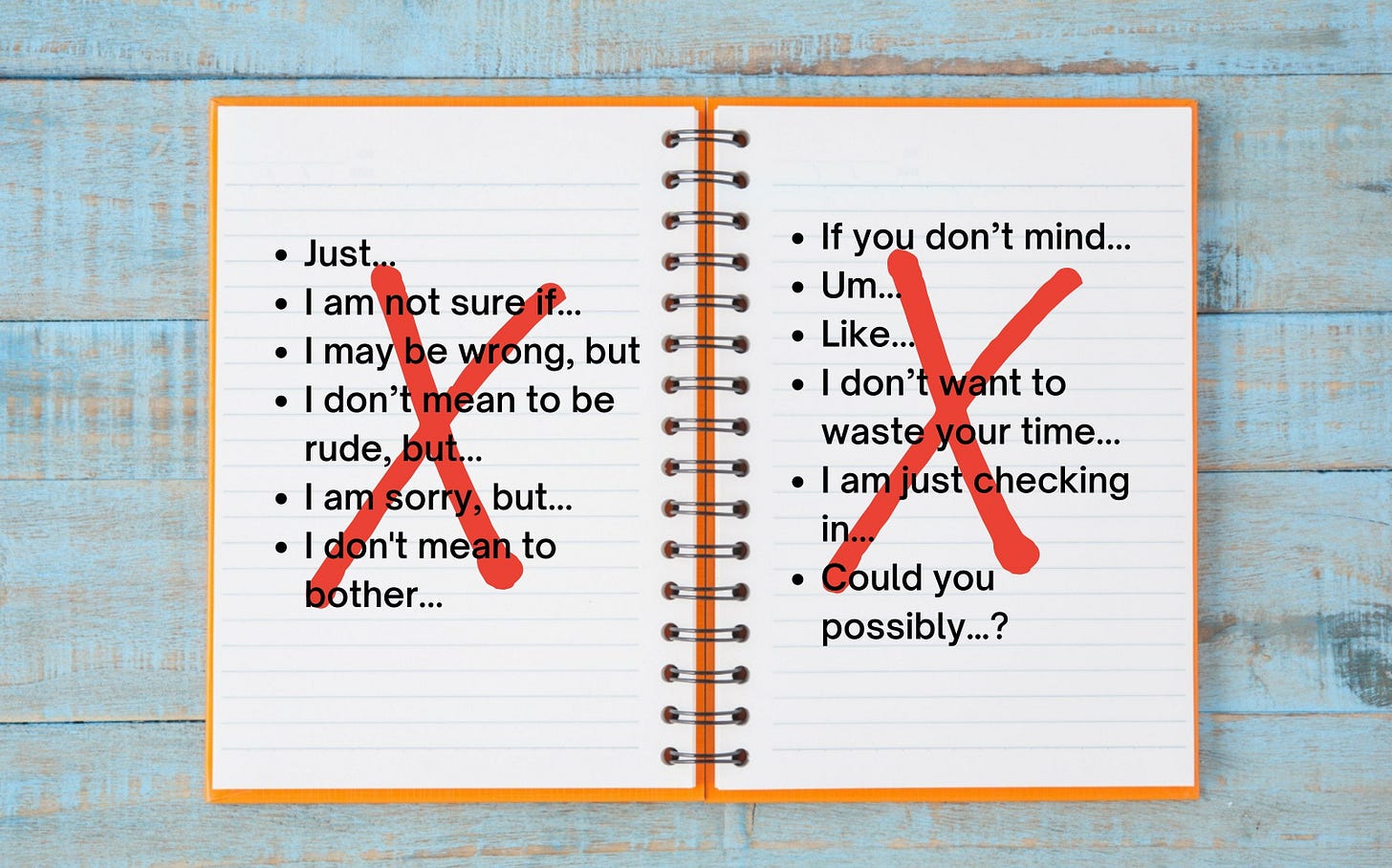Increase Your Influence by Changing the Way You Write and Speak
Words to scrub from your vocabulary
“I am just checking in on the ask for the testing data I sent last week. I am sorry if I missed it, but since it was due yesterday, I wanted to check-in. Let me know if you have time to get to it soon or if you need help to get it done.”
How many times have you sent this email? A colleague dropped the ball and you are apologizing for missing it, excusing the miss, and offering help. In the process, however, you are also reducing your influence and diminishing the impactfulness of what you’re saying. How you say something is often just as important as what you say, and the words you use to convey your message can make all the difference in how it is received.
Let’s look at the same reminder email delivered in a slightly different way. It might look something like this:
“The testing data was due yesterday. Please send it to me by the end of the day today since it is holding up the prep for the board presentation. Thanks."
Do you notice a difference? The first example was wishy-washy, hesitant, and unnecessarily wordy. The second example comes across completely differently: It is polite and courteous, but it is also to-the-point, making it harder to brush off or misinterpret. Both emails send the same message; the difference is in the language they use.
In one of my previous posts, I discussed the benefits of being plainspoken, and how it can provide clarity and drive alignment. One of the simplest ways to implement this skill is to be decisive about the language you use. Below is a list of common hedge words: words and phrases that can creep into your communication and diminish the impact of what you’re saying. Cutting out these hedge words will help you make yourself heard and more easily reach alignment.
Just
I am not sure if
I may be wrong, but
I don’t mean to be rude, but
I am sorry, but
I don't mean to bother you
If you don’t mind
Um
Like
I don’t want to waste your time
I am just checking in
Could you possibly…?
By making a few simple adjustments to the ways you speak and write, you will be able to communicate more sharply, declaratively, and assertively—without losing your message in the process.
Stop hedging and start asking
Hedge words are our way of making ourselves smaller. Less offensive. Less noticeable. We think that if we hedge what we say, it's less likely to upset anyone. (I do this myself quite a bit.) The problem with these words is that they are taking away our power. They are diminishing our voice and the messages that we send. They are reducing our influence.
Many times, especially when we make a request or ask for a favor, we hedge. We do it when we are asking someone for something they owe to us. We do it when we would otherwise want to demand action, thinking that it will get us a better outcome. This stems from the misconception that being diplomatic and being assertive are mutually exclusive. But there is a middle ground, and if you can find it, you will achieve the best result in any situation.
Keep reading with a 7-day free trial
Subscribe to Perspectives to keep reading this post and get 7 days of free access to the full post archives.


